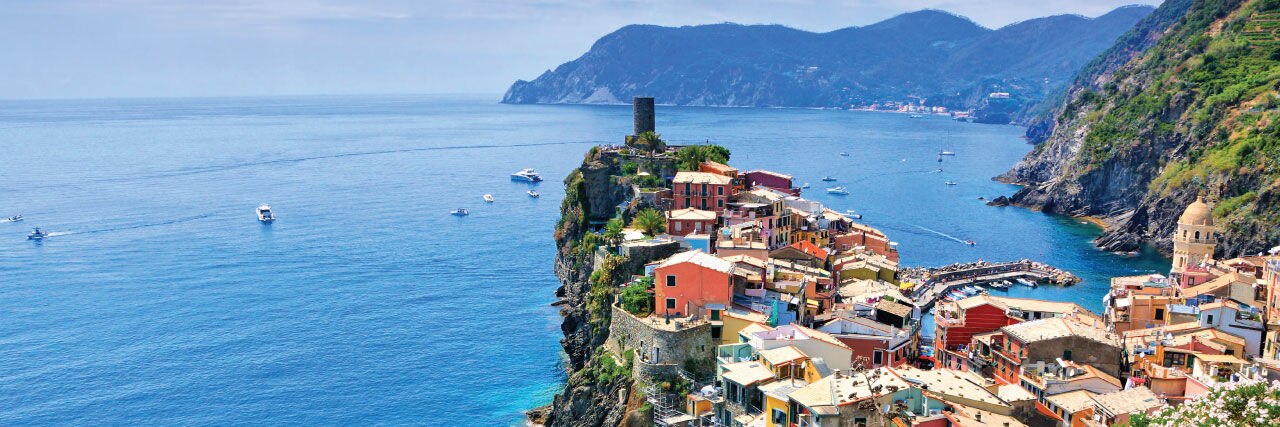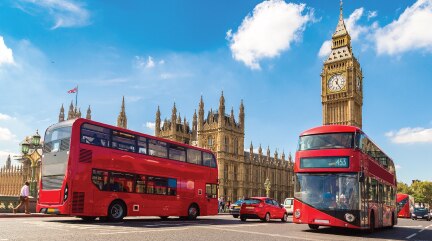- text
-
† For up to 12 months after the illness or injury first occurs.
Best summer destinations in Europe 2025.
What you need to know for your European travel this summer.
Travel Insurance | 7 minute read | 17 March 2025

- What you need to know for your European travel this summer.
- Why summer is the perfect time to explore Europe.
- Plan ahead for the summer season.
- Top European summer destinations in 2025.
- 10 essential tips for summer travel in europe.
- Budget-friendly summer travel in Europe.
- Summer travel in Europe frequently asked questions (FAQs).
- Everyday Travel Insurance coverage for Europe.
Plan your European travel itinerary this summer to escape the Australian winter in 2025.
For Australians, a European summer is the ultimate long-haul dream. Picture this: the scent of lavender fields in Provence, the taste of gelato melting on your tongue in Rome, the sound of live music echoing through a Spanish plaza. It's a time when ancient cities burst with life, landscapes shimmer under the golden sun, and the promise of unforgettable experiences hangs in the warm air. But with so much to see and do, planning a 2025 European summer trip can feel overwhelming.
Let's break down how to make the most of your summer escape.
Why summer is the perfect time to explore Europe.
Longer daylight hours: maximise your sightseeing with extended daylight, allowing you to explore more and enjoy those magical golden hour moments.
Vibrant festivals and events: from music festivals like Tomorrowland to cultural celebrations in local villages such as the Tomatina, summer in Europe is a non-stop party.
Warm and sunny weather: perfect for outdoor activities, beach days, and al fresco dining.
Lively atmosphere: experience the buzz of bustling cities and the relaxed charm of coastal towns at their peak.
Plan ahead for the summer season.
Summer is the peak tourist season in Europe. This means crowds, higher prices, and booked-out accommodations. Therefore, planning is crucial.
Book early: secure flights and accommodation months in advance to avoid disappointment and inflated costs. Consider booking train travel as well, especially for popular routes.
Be flexible: while having a rough itinerary is helpful, leave room for spontaneity. Embrace unexpected detours and local festivals.
Consider shoulder seasons: if possible, travelling in late spring (May/June) or early autumn (September) offers pleasant weather with fewer crowds and lower prices.
Top European summer destinations in 2025.

Mediterranean Coast (Italy, Greece, Spain): Sun, history, and cuisine.
Indulge in exquisite cuisine, relax on pristine beaches, and explore ancient historical sites.
Italy: discover the Roman Forum, unwind on the Amalfi Coast, and savor Tuscan gastronomy.
Greece: island-hop the Cyclades, explore Santorini's iconic views, and delve into Athens' ancient history.
Spain: experience Barcelona's vibrant nightlife, explore Madrid's royal palaces, and relax on the Costa Brava's sandy shores.
Scandinavia (Norway, Sweden, Denmark): Midnight sun and fjords.
Experience the midnight sun, explore breathtaking fjords, and enjoy refreshing, cool climates.
Norway: cruise through majestic fjords, witness the midnight sun, and discover the Viking history.
Sweden: explore the Stockholm archipelago, enjoy long summer days, and experience swedish design.
Denmark: discover Copenhagen’s canals, enjoy Tivoli gardens, and experience Danish hygge.


Central Europe (France, Germany, Switzerland): Culture and alpine beauty.
Immerse yourself in rich history and culture, explore iconic landmarks, and enjoy world-class museums and alpine landscapes.
France: wander through Provence's lavender fields, explore Parisian landmarks, and relax on the French Riviera.
Germany: explore Berlin's history, enjoy Munich's beer gardens, and hike in the Bavarian Alps.
Switzerland: experience stunning mountain scenery, hike in alpine meadows, and enjoy tranquil lakes.
Eastern Europe (Croatia, Hungary, Czech Republic): Historic cities and island escapes.
Discover hidden gems, explore historic cities, and enjoy affordable travel options.
Croatia: island-hop along the Dalmatian Coast, explore Dubrovnik's ancient walls, and enjoy the Adriatic sea.
Hungary: cruise the Danube in Budapest, explore thermal baths, and discover Hungarian cuisine.
Czech Republic: explore Prague's Old Town, enjoy Czech beer, and discover historic castles.


United Kingdom and Ireland (London, Edinburgh, Dublin.): History, landscapes and events.
Explore historic cities, enjoy lush green landscapes, and experience world-class events.
United Kingdom: explore London's landmarks, discover Edinburgh's historic charm, and hike in the Scottish Highlands.
Ireland: discover Dublin's lively culture, explore the Irish countryside, and experience ancient castles.
10 essential tips for summer travel in europe.

Summer is peak season, so secure your bookings early to avoid disappointment and inflated prices.
Opt for lightweight, breathable clothing, comfortable shoes, and a versatile jacket for cooler evenings.
Carry a reusable water bottle and stay hydrated, especially during hot days.
Wear sunscreen, a hat, and sunglasses to shield yourself from the strong summer sun.
Popular tourist destinations can get crowded, so plan your visits accordingly and consider exploring lesser-known areas.
Learning a few basic phrases in the local language can enhance your travel experience.
Europe has excellent public transportation systems, making it easy to get around.
Consider comparing travel insurance to find a policy that best suits your needs.
Enhance your trip by partaking in local festivals.
Europe has had many recent heat waves, so check the weather, and plan accordingly.

Budget-friendly summer travel in Europe.
Travel in the shoulder seasons.
Traveling in late May/early June or September offers a sweet spot: pleasant weather with significantly fewer crowds and lower prices compared to the peak of July and August. Airlines and accommodations often offer discounted rates during these periods. This allows you to experience popular destinations without the overwhelming crowds and inflated costs.
Utilise budget airlines.
Europe boasts a robust network of low-cost airlines like Ryanair, EasyJet, and Wizz Air. These carriers provide affordable flights within Europe, allowing you to hop between countries without breaking the bank. Be mindful of baggage restrictions and potential extra fees, and book in advance for the best deals.
Stay in hostels or Airbnb.
Hostels offer a social and budget-friendly accommodation option, often providing communal kitchens for self-catering. Airbnb provides a wide range of apartments and rooms, allowing you to experience local neighborhoods and potentially save on food costs. Consider also guesthouses, and smaller family owned hotels.
Eat like a local.
Skip tourist traps and embrace local markets and cafes. Purchase fresh produce, bread, and cheese for picnics in parks, savoring the authentic flavors of the region. Look for "menu del dia" or daily specials at local restaurants, which offer set meals at affordable prices. Enjoying street food can also be a delicious and cost-effective way to experience local cuisine.
Take advantage of free activities.
Many European cities offer free walking tours, providing an excellent introduction to local history and culture. Explore public parks and gardens, which offer beautiful green spaces for relaxation and recreation. Take advantage of free museum admission days or discounted entry for students or seniors. Research free events and festivals happening during your travel dates. Many cities have free concerts and outdoor events during the summer.
Embrace alternative transport.
Consider traveling by long-distance bus or train instead of frequent flights. These options are often cheaper and allow you to see more of the countryside. Explore destinations closer together to minimise transport costs. Consider renting a bicycle in cities or rural areas for affordable and enjoyable exploration. Look into ride-sharing apps for longer distance travel. Slow travel allows you to experience a destination more deeply and reduce travel cost.
Summer travel in Europe frequently asked questions (FAQs).
The peak season is July and August, but June and September offer pleasant weather and fewer crowds.
Lightweight clothing, comfortable shoes, sunscreen, a hat, sunglasses, a reusable water bottle, and a universal adapter.
Costs vary depending on your destination, travel style, and duration of your trip. Budget travelers can expect to spend AU$100-$150 per day, while luxury travelers may spend AU$300+ per day.
Europe is generally safe for travelers, but it's essential to take precautions against petty theft and be aware of your surroundings.
Some countries don't require a visa for short tourist visits. Check out the latest visa requirements for Europe here.
Europe has an excellent network of trains, buses, and budget airlines. Consider purchasing a rail pass for extensive train travel, or utilise budget airlines for quick hops between cities. Public transportation within cities is also generally reliable and efficient.
Respect local customs and traditions. Dress modestly when visiting religious sites. Learn a few basic phrases in the local language. Be mindful of noise levels, especially in residential areas. Tipping practices vary, so research local customs.
Consider purchasing a local SIM card or an eSIM for affordable mobile data. Many cafes and public spaces offer free Wi-Fi. Check with your mobile provider about international roaming options.
Credit cards are widely accepted in major cities and tourist areas, but it's always a good idea to carry some cash, especially when visiting smaller towns or local markets. Contactless payments are also very common.
Stay hydrated by drinking plenty of water. Avoid strenuous activities during the hottest parts of the day. Wear light, loose-fitting clothing and seek shade whenever possible. Be aware of local heat advisories and follow safety guidelines.
Want to learn more about travelling to Europe?
Read our Europe travel guide.
Everyday Travel Insurance coverage for Europe.
Everyday Travel Insurance offers a range of plans that may suit your needs, from basic cover to comprehensive options with higher coverage limits for medical expenses, cancellations, and more.
What is included in the cover.
Overseas medical expenses.†
Can help with emergency medical bills, hospital stays, and ambulance trips if you get sick or injured overseas.
Luggage and personal effects.#
For lost, stolen, or damaged luggage, like suitcases and clothes.
Medical evacuation and repatriation.
Assists with getting you home if you're seriously ill or injured overseas.
Rental vehicle excess.~
Can help cover the excess you'd have to pay if your rental car is damaged or stolen.
Emergency travel & accommodation expenses.
For unexpected travel changes and accommodation needs.
Travel delay.
Can help manage costs from unexpected travel delay.
Replacement passports and travel documents.
Helps cover the costs of replacing lost or stolen passports, travel documents, or credit cards.
Cancellation or holiday deferment costs.~
In case you need to cancel or change your trip when the unexpected happens.
Subject to terms, conditions, limitations and exclusions. Benefit limit amounts vary by level of cover. Above is a summary only. Please read the Product Disclosure Statement (PDS), Financial Services Guide (FSG) and Target Market Determination (TMD) for full terms, conditions, limitations and exclusions that apply.
Related articles.
Important information.
~ Subject to the terms, conditions, limits and exclusions of your policy.
- text
-
# Sub-limits apply.
- text
-
Woolworths Group Limited, ABN 88 000 014 675, AR 245476 is an authorised representative of nib Travel Services (Australia) Pty Ltd (nib), ABN 81 115 932 173, AFSL 308461 and act as nib's agent and not as your agent. This is general advice only. Before you buy, you should consider your needs, the Product Disclosure Statement (PDS), Financial Services Guide (FSG) and Target Market Determination (TMD) available from us. This insurance is underwritten by Pacific International Insurance Pty Ltd, ABN 83 169 311 193.




